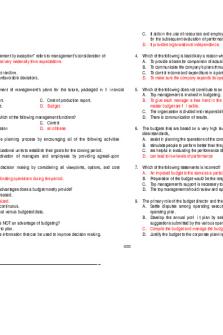Don’t Bother the Earth Spirit blah blah PDF

| Title | Don’t Bother the Earth Spirit blah blah |
|---|---|
| Author | Sydney Young |
| Course | Environmental Engineering |
| Institution | University of Central Florida |
| Pages | 1 |
| File Size | 66.9 KB |
| File Type | |
| Total Downloads | 17 |
| Total Views | 159 |
Summary
blahahhahahahahhahdsdsjhdjsahdjkahs hj dhjsk hjd hjd hj dhjd hdj shjd hjd j hf jhfj h jf fjfj dhjs fjdhfjd hjh h h h h h hh h h h hh jh jdhfjdhfj blahahhahahahahhahdsdsjhdjsahdjkahs hj dhjsk hjd hjd hj dhjd hdj shjd hjd j hf jhfj h jf fjfj dhjs fjdhfjd hjh h h h h h hh h h h hh jh ...
Description
Don’t Bother the Earth Spirit Poem by Joy Harjo
Don’t bother the earth spirit who lives here. She is working on a story. It is the oldest story in the world and it is delicate, changing. If she sees you watching she will invite you in for coffee, give you warm bread, and you will be obligated to stay and listen. But this is no ordinary story. You will have to endure earthquakes, lightning, the deaths of all those you love, the most blinding beauty. It’s a story so compelling you may never want to leave; this is how she traps you. See that stone finger over there? That is the only one who ever escaped.
Directions: Read the poem above. 1. Annotate positive tone words in green and negative tone words in magenta. 2. Respond to the questions below. Questions ●
●
Part A: How do lines 1 through 6 help to establish the tone of the passage?
Part B: Select the words from each line that establish the tone of the passage.
How does the author's choice to structure the text create mystery, tension, or surprise?
Annotate, Read and Respond It makes the tone urgent because the speaker is telling you to not bother the earth spirit. Bother, obligated, no ordinary, endure, earthquakes, lightning, deaths, blinding, compelling, leave, traps, escaped
The poem is not in a regular poem form, so it intrigues the reader
Analyze Cultural Perspective ●
How does a particular point of view or cultural experience affect the text?
●
How does the author develop a particular perspective or cultural experience?
The speaker is a spectator and is has watched the events unfold and it makes it seem like they are warning the reader She says words like “you” so you know she’s talking to you and makes it sound like she’s storytelling to you and that it is a common experience...
Similar Free PDFs

Nike work blah blah
- 7 Pages

Blah blah - Lecture notes 2
- 1 Pages

Blah - lecture
- 12 Pages

Mambalam Times T - blah
- 8 Pages

Report writing blah
- 2 Pages

Bhiayasfrnd sleeper - blah
- 3 Pages

X08 Budgeting - blah
- 21 Pages

The Spirit of Laws
- 2 Pages

\'The Spirit of Geneva\'
- 7 Pages

Résumé Spirit Level
- 4 Pages
Popular Institutions
- Tinajero National High School - Annex
- Politeknik Caltex Riau
- Yokohama City University
- SGT University
- University of Al-Qadisiyah
- Divine Word College of Vigan
- Techniek College Rotterdam
- Universidade de Santiago
- Universiti Teknologi MARA Cawangan Johor Kampus Pasir Gudang
- Poltekkes Kemenkes Yogyakarta
- Baguio City National High School
- Colegio san marcos
- preparatoria uno
- Centro de Bachillerato Tecnológico Industrial y de Servicios No. 107
- Dalian Maritime University
- Quang Trung Secondary School
- Colegio Tecnológico en Informática
- Corporación Regional de Educación Superior
- Grupo CEDVA
- Dar Al Uloom University
- Centro de Estudios Preuniversitarios de la Universidad Nacional de Ingeniería
- 上智大学
- Aakash International School, Nuna Majara
- San Felipe Neri Catholic School
- Kang Chiao International School - New Taipei City
- Misamis Occidental National High School
- Institución Educativa Escuela Normal Juan Ladrilleros
- Kolehiyo ng Pantukan
- Batanes State College
- Instituto Continental
- Sekolah Menengah Kejuruan Kesehatan Kaltara (Tarakan)
- Colegio de La Inmaculada Concepcion - Cebu





